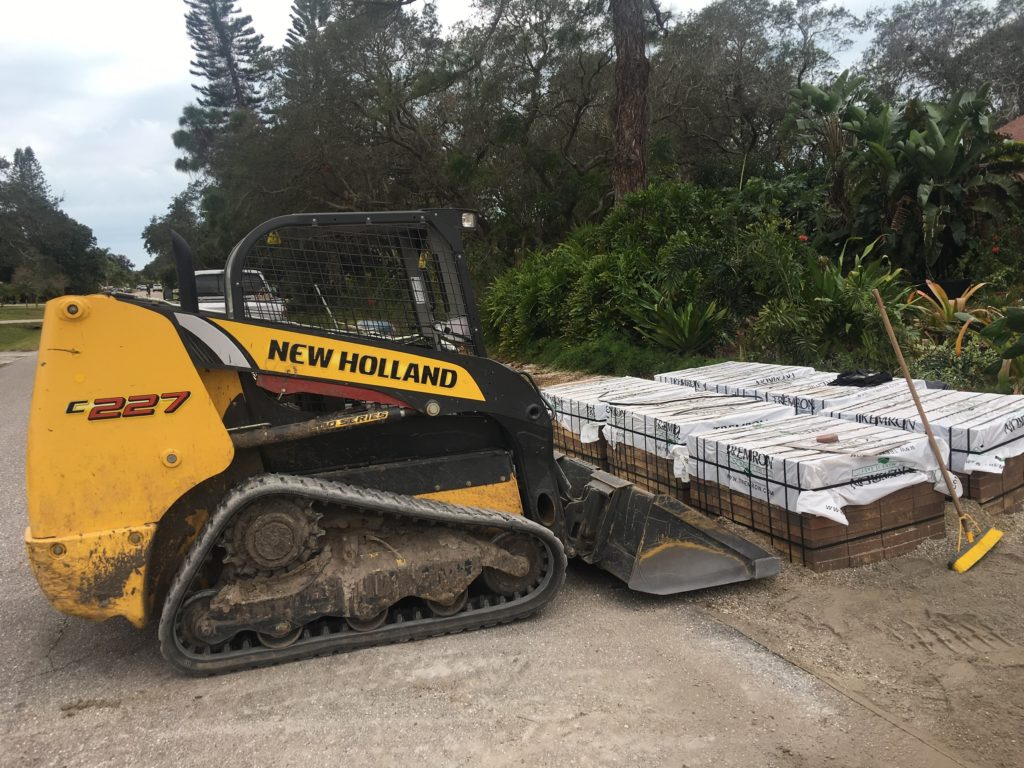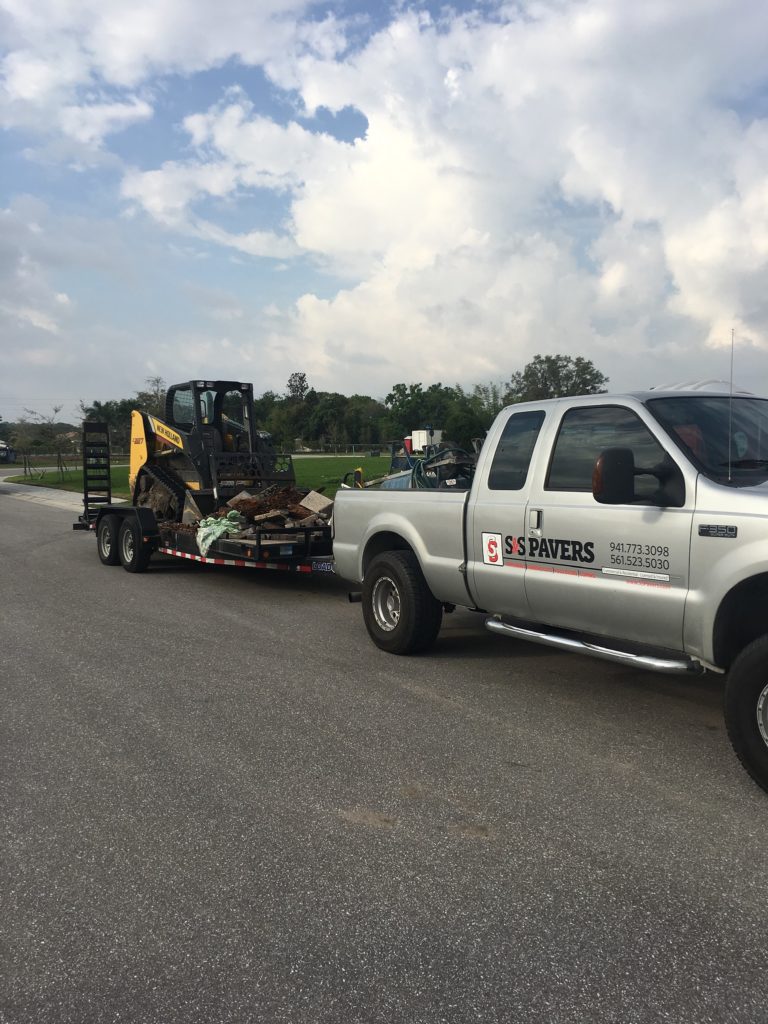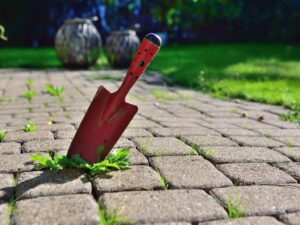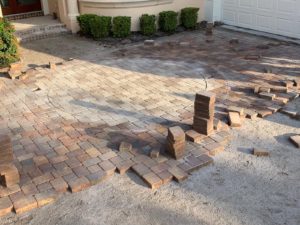We guess you already got to know what pavers are and, may also know their several advantages. Pavers are the best material for outdoor projects, considering its durability, easy maintenance, and sheer beauty, in addition to being ecological, with high drainage capacity.
However, when planning a paver installation one question pops up a lot. How much do pavers weight? Are they heavy? Will I need a truck or forklift for transportation?
In this article, we’ll tell you exactly how much pavers of different materials and sizes weigh and, consequently, explain how this impacts the installation process.

How Much Do Pavers Weight Exactly
Pavers are sold in different formats, different thicknesses, and different materials. Therefore, all of these factors influence weight.
When shopping for pavers, manufacturers or retailers can supply per-unit and pallet weights, in addition to individual paver size measurements, that’s the only way to know exactly how much the pavers you want to purchase weight. Nevertheless, we will let you know how much natural stone, brick, and concrete pavers weight on average.
Concrete pavers that are 1 inch (1’’) thick weigh about 11 pounds per square foot and 2-inch-thick pavers weigh twice that, which means 22 pounds.
Brick pavers weight about 22 pounds per square feet for the standard 2 ¼-inch thick red clay brick.
Lastly, your average 1″ thick natural stone weighs about 14 pounds per square foot, depending on the stone this can be drastically different.
Now you have all the averages per square foot, and if you wish to find out how much your individual paver unit weights, you just need to calculate their area in square feet and multiply by the per square foot average.
To find out the area of an individual paver unit, multiply the length by the width. In a 4-by-8-inch paver, you have 32 square inches.
Divide the number of square inches in the paver by the number of square inches in a square foot (12 inches by 12 inches, 144 square inches). In the end, multiply this number by the average per square foot to find out the individual paver weight.
How Does Pavers Weight Impact Installation
The logistics for loading and installing pavers can be tougher than it seems.
The total weight of all the pavers you will need to install impacts the installation in terms of logistics since everything has to be loaded to the site.
But that’s not all, this weight directly impacts correct soil preparation since it must support the weight.
Find Out How Many Pavers You Need
Here are some instructions on how to find out exactly how many pavers you need and thus find out how much they will weigh to load and what equipment you will need:
1. Measure the length and width of the terrain with a measuring tape and multiply width vs length to determine the area.
2. Add 5 to 10 percent to the area to account for cutting.
3. Divide the project area by the individual paver area to find the number of pavers you need for your project.
4. Multiply the area by the per square foot average to find out how many pounds of pavers you will need to load on your site.
Soil Preparation For Heavy Pavers
Pavers are seated directly on the ground in a sand bed. It’s important that groundwork is done properly in order to support all the weight that it will be subjected to. Especially if cars will drive over it.
Soil preparation consists of leveling, digging, and filling with gravel and sand, followed by compaction.
Poorly prepared ground won’t properly support heavy pavers, leading to sand shifting, bumps, and depressions in your project.
Is installing pavers by myself possible?
Installing pavers is always a good idea, but due to all the obstacles pointed out and to avoid damage and excessive expenses, hiring professionals can be a better option for you.
One thing to consider is that professionals have all the appropriate equipment and skills.
Investing money in correct installation, carried out by industry professionals, can guarantee greater durability and maintenance, insofar all of them require groundwork, digging, outlining, and marking the area, as well as skills and tools to be installed, which are harder to get.

Get a free estimate
Don’t get scared thinking about the price while you don’t even know what it is.
Just choose a reputable supplier and get a free estimate. What’s there to lose?
Get in touch to check our pavers catalog to see amazing, not expensive, options. We will be glad to assist and ensure your next paver project will provide the look and durability you wish.




